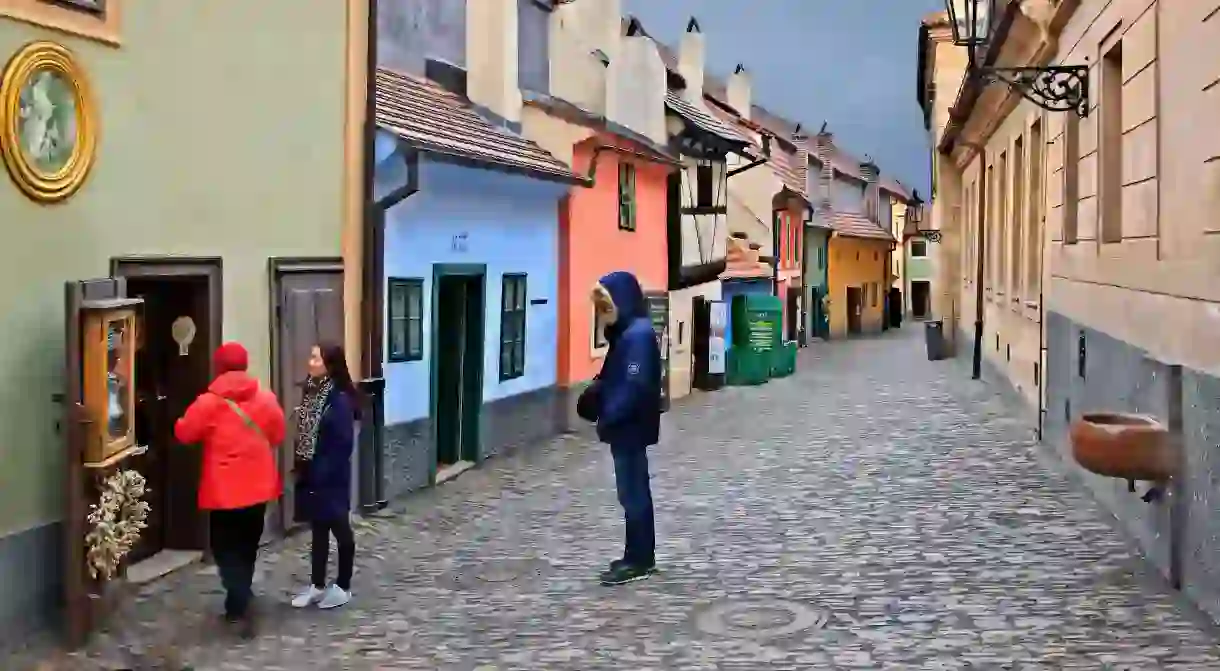The History and Myths of Prague's Golden Lane

Prague’s Golden Lane is a picturesque street of colourful houses inside the grounds of the city’s castle. One of the most popular areas of the castle grounds, the street is full of history and the subject of a few fun legends.
History
Golden Lane didn’t always look the way it does today. For starters, there were originally two lanes of houses across the street from one another. Built in the 16th century, the houses originally served as dwellings for the castle guards.

Fast forward to the 19th century, and all the houses on one side of the street were demolished, leaving only the ones that are still seen today. At the time, the houses weren’t technically part of Prague Castle, so they served as homes for poorer individuals, who remained in the buildings until after World War II. After the war, the street was integrated into the castle and the houses repainted in the colours they are today, then converted into small shops and showrooms.

Some of the houses have been decorated with furniture, artefacts and items that represent different eras. There are goldsmiths’ work areas, small cinema rooms and even tiny bedrooms and living areas.

Myths and legends
Golden Lane is often referred to as the ‘street of alchemists’. Despite the legend, however, the houses were never occupied by the king’s alchemists. Emperor Rudolf II of Austria (who eventually moved to live permanently in Prague) did have alchemists living in the castle, but they occupied rooms inside the main structure, rather than living in the tiny houses of Golden Lane. Rudolf’s alchemists did most of their work inside the Mihulka Tower, which sits on the northern side of the castle.
The name ‘Golden Lane’, however, is not completely arbitrary, as in the 17th century, the royal goldsmiths lived on the street.

Famous residents
At one point and another through history, Golden Lane has been home to a number of famous figures. Perhaps the best known is Prague native Franz Kafka, who lived in number 22, his sister’s home, for almost two years.

Amateur film historian Josef Kazda lived at number 12. Kazda is best remembered for saving thousands of films and documentaries from the Nazis during World War II. While the Nazis were destroying films and other national treasures, Kazda hid copies in his house – and even organised small screenings in secret – a big feat, considering how tiny the Golden Lane houses were, and still are.
Nobel Prize-winning writer and poet Jaroslav Seifert lived on Golden Lane in 1929, but his house was one of the ones that were demolished.














